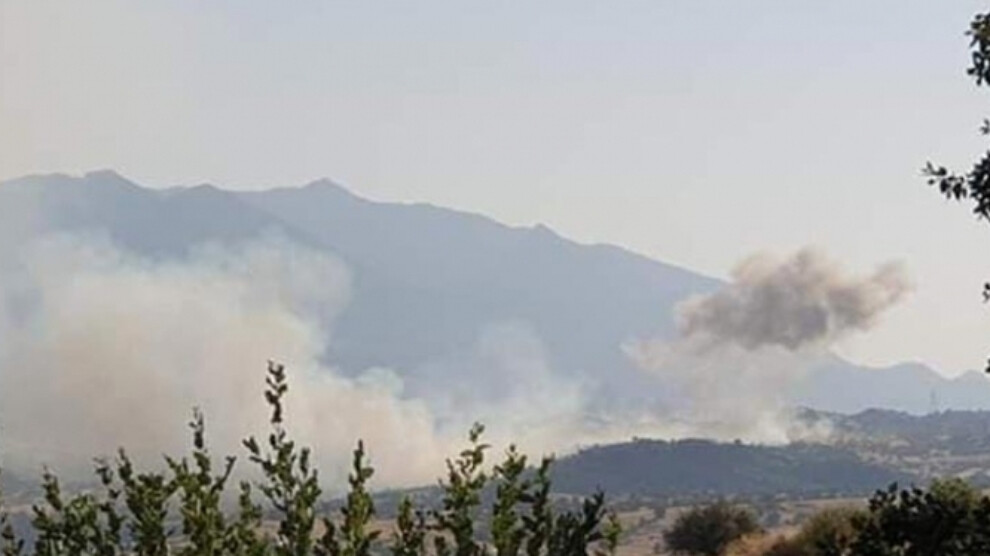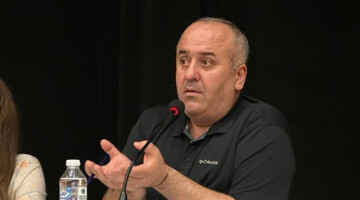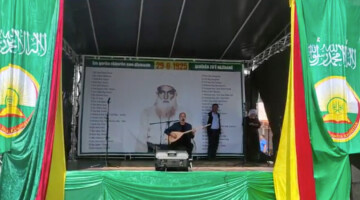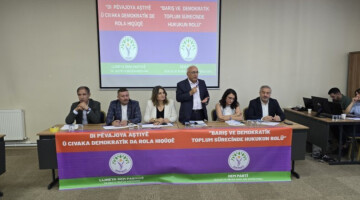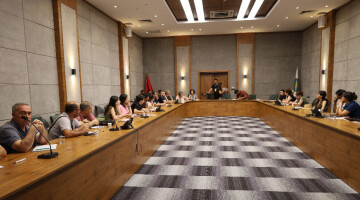Kurdish organizations and political parties in Europe have written a letter to the Executive Committee of the United Nations Office for Disarmament Affairs (UNODA) and the Organisation for the Prohibition of Chemical Weapons (OPCW). The signatories called for action against the Turkish state’s use of chemical weapons in its ongoing war against the Kurdish guerrilla forces in southern Kurdistan (northern Iraq).
The letter reads as follows,
“Since April 2021, we have been witnessing unending military interventions of the Turkish state within the borders of Iraq in the area under the jurisdiction of the Kurdistan Regional Government. These interventions, which can be defined as an occupation in terms of international law, create very serious violations of human rights.
Among these serious violations is the use of prohibited weapons. Nevertheless, sufficient information cannot be obtained from this region because it is a battlefield and is prohibited from inspection by civilian and independent delegations. Banning independent inspections from the conflict area is raising serious concerns.
Under these conditions, the information that reaches the public only comes from the guerrilla forces and their relatives who are exposed to banned weapons and chemical attacks.
According to current information, it has been determined that chemical weapons were used at least 323 times in the last period of six months between 23th April (when the conflict escalated) up to 23th October 2021. During this period, 38 guerrillas lost their lives as a result of chemical attacks.
Another six guerrillas lost their lives in the attack with chemical weapons, that took place in the area known as Girê Sor, on September 3, 2021, but three guerrillas survived despite being harmed. The three guerrillas who survived the attack gave concrete information about the smell, taste, and effects of the gas. They also conveyed their observations on the situation of the guerrillas who lost their lives. This concrete data convinces us that this issue should at least be investigated in depth.
Again, according to information received, people (civilians) in the Behdinan region, which was turned into a conflict area, were also taken to different hospitals because they were affected by the chemical weapons. The people of the region are reluctant to give information because they are under pressure.
Dear Representatives,
It is also possible to see in the findings by international judicial institutions that the Turkish State used brutal violence and massacres against civilians in its war against the Kurdish people. European institutions have also confirmed the frequent use of prohibited weapons. Especially over the last five years, we have seen that the Turkish State has used all kinds of banned weapons in its attacks, in which they brought the war of destruction and ethnic cleansing against the Kurdish people.
The Kurdish people, who have become the target of the Turkish State, know very well that the Turkish regime has the capacity to use chemical weapons and uses these, and that they do not respect any laws and treaties. However, what is striking is the fact that international powers, institutions, and those who define themselves as independent remain silent like a wall in the face of these illegal and inhumane attacks.
We know that you, OPCW, are the institution that needs to take the most urgent action on the use of chemical weapons. In the silence of the international community, your attitude affects us the most. Is it not normal that the Kurdish people have expectations from you, the most authoritative institution on the use of chemical weapons? Is it not your reason for existence to prevent the use of such prohibited weapons? So why not take action against the chemical attacks by the Turkish State on the Kurdish people, which you know about?
We, the Kurdish people expect you to make a serious statement against the Turkish State. Our people expect you to take a public stance and take initiatives regarding these chemical weapons attacks. As long as you remain silent, you create the impression that these attacks are approved.
We, as the undersigned Kurdistan parties and institutions in Europe, share these concerns of our people and are looking forward to your response. Most importantly, we demand that you take immediate action to prevent chemical attacks, which is your primary duty.
List of Kurdistan Organizations and political parties in Europe
- YNK (Patriotic Union of Kurdistan, PUK)
- GORRAN movement
- KCDK-E (Congress of Democratic Societies of Kurdistan in Europe) KUR
- TJK-E (Kurdistan Women's Movement-Europe)
- Party ŞÛÎ Kurdistan Basur
- Kongra Star (Women's Organization of Western, Northeastern Syria) Europe
- Troubled Party - South
- PAD (Yazidi Freedom and Democracy Party)
- Freedom Movement
- PYD (Democratic Union Party)
- P.D.K.S (Syrian Kurdish Democratic Party)
- Kurdish Left Party in Syria.
- The Modern Kurdistan-Syria Movement.
- PÇDKS (Left Kurdish Democratic Party in Syria.)
- Kurdish Democratic Party in Syria (El Partî).
- Democratic Left Party in Syria.
- Kurdish Reconciliation Party in Syria.
- Kurdish Reform Party in Syria.
- Kurdistan Green Party in Syria.
- Kurdistan Democratic Party in Syria.
- Kurdistan Communist Party in Syria.
- PÎK (Kurdistan Islamic Party)
- KKP (Kurdistan Communist Party)
- Coffee Movement
- PJAK (Free Life Party of Kurdistan)
- Kurdistan Revolutionary Union
- KODAR (Democratic Society and Freedom of East Kurdistan)
- KJAR (East Kurdistan Women's Society)
- Horam Platform
- Platform Zagros
- Plattform Yarsan
- Kurdish Games
- Kurdish Democratic Progressive Party in Syria
- Tevçand (Kurdish Culture and Art Movement)
- Kurdische Gemeinde Stuttgart e.V
- FEDA (Federation of Kurdistan Alevis)
- NAME - ONE (Federation of Yezidi Associations)
- Kurdische Zentrum Berlin
- CIK (Kurdistan Islamic Society)
- Kurdish Institute - Germany
- Kurdish Institute - Brussels
- MŞD (Shingal Assembly Abroad)
- YMK (Kurdistan Teachers Union)
- YES (Union of Syrian Yezidis)
- Kurdisch Gemeinde Brandenburg - Berlîn
- Dachverband der Êzidischen Frauenräte
- DKF (Deutsch-kurdisches Forum) e.V Dresden
- th Mesopotamian People's Congress.
- Mesopotamian Freedom Party.
- Kurdistan human rights Association
- Kurdisch United Nations Association

